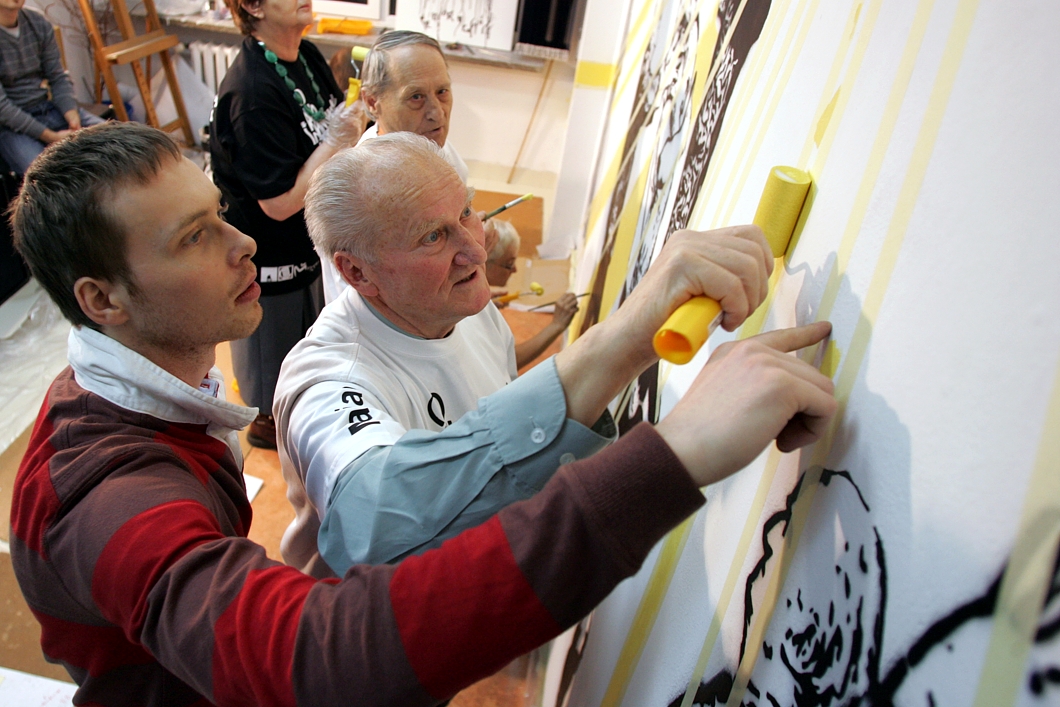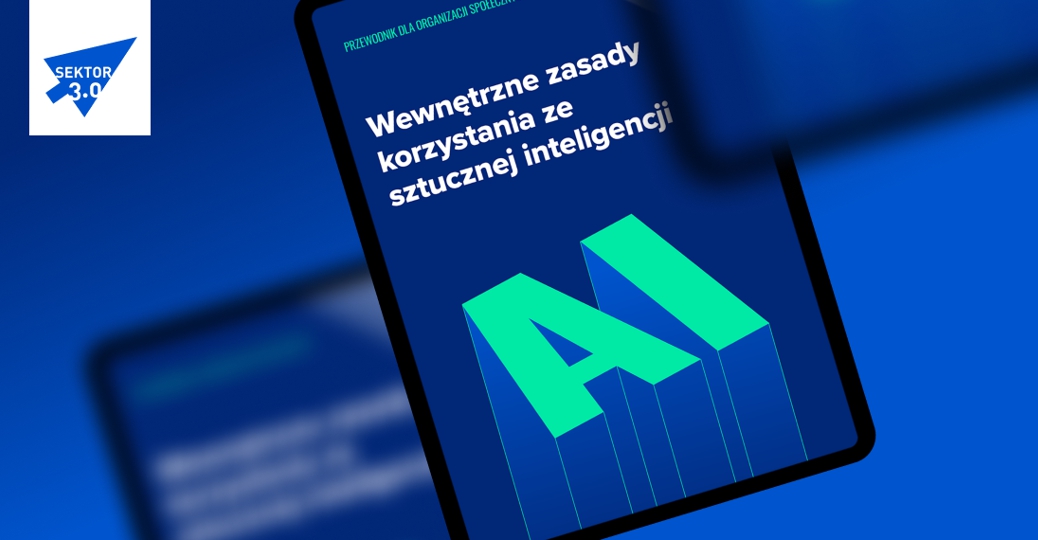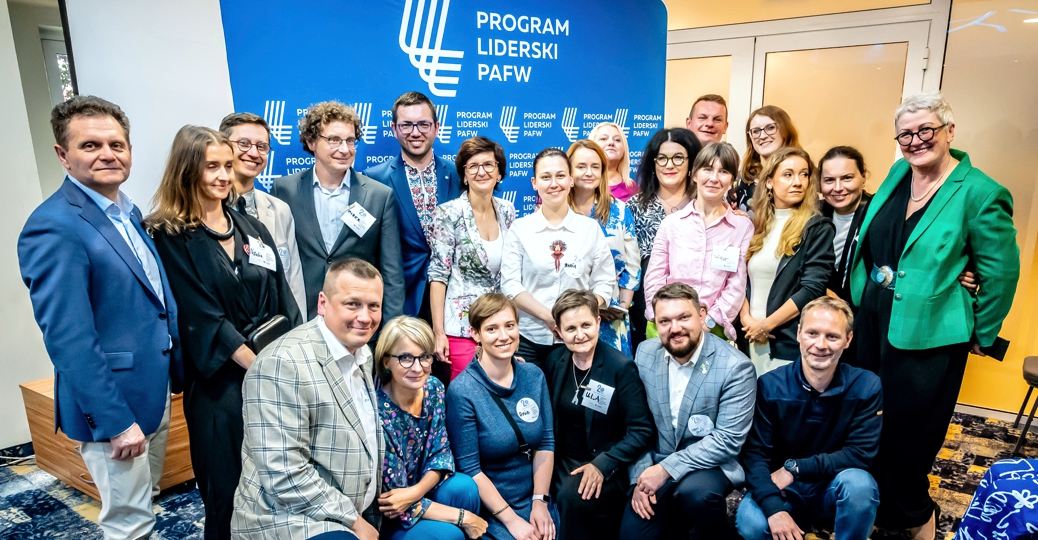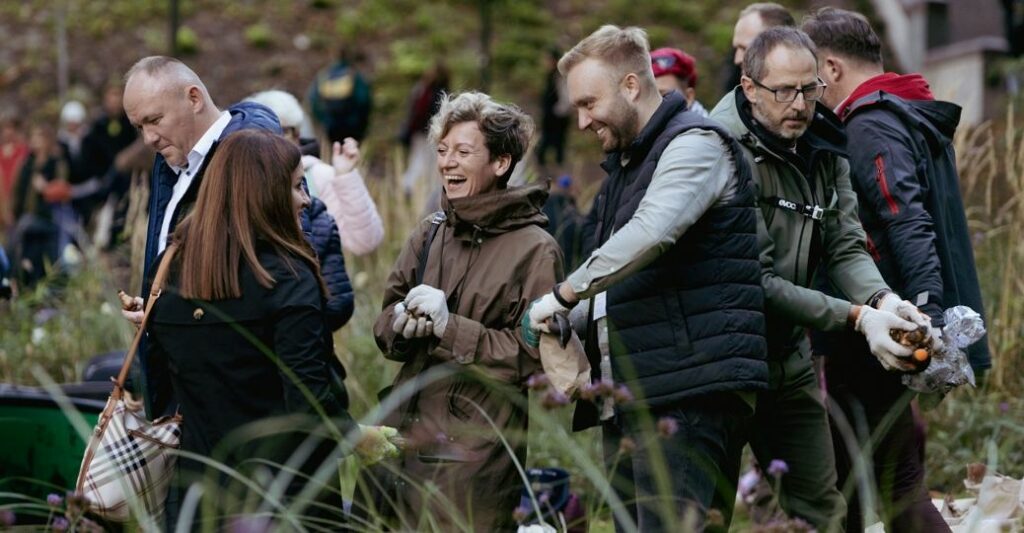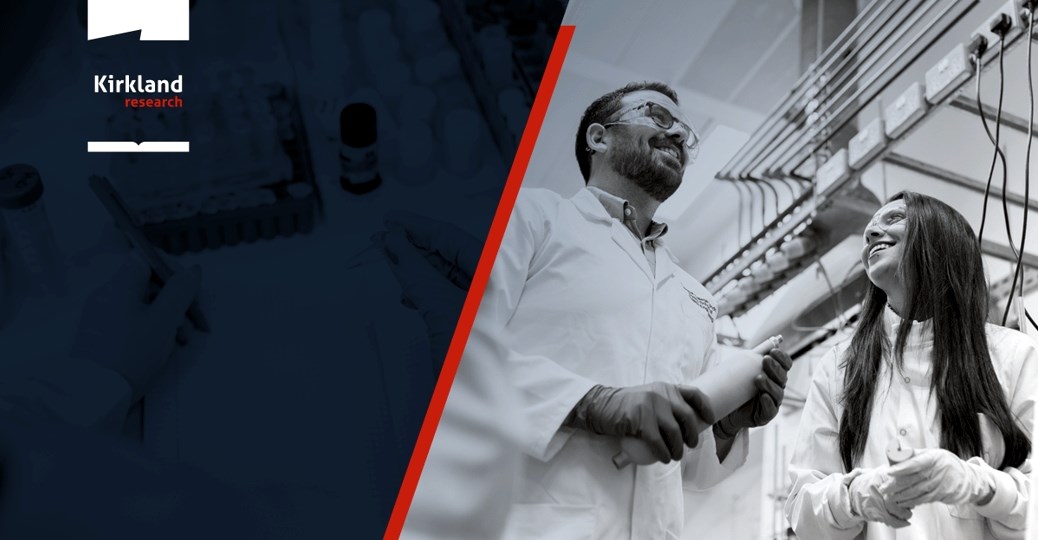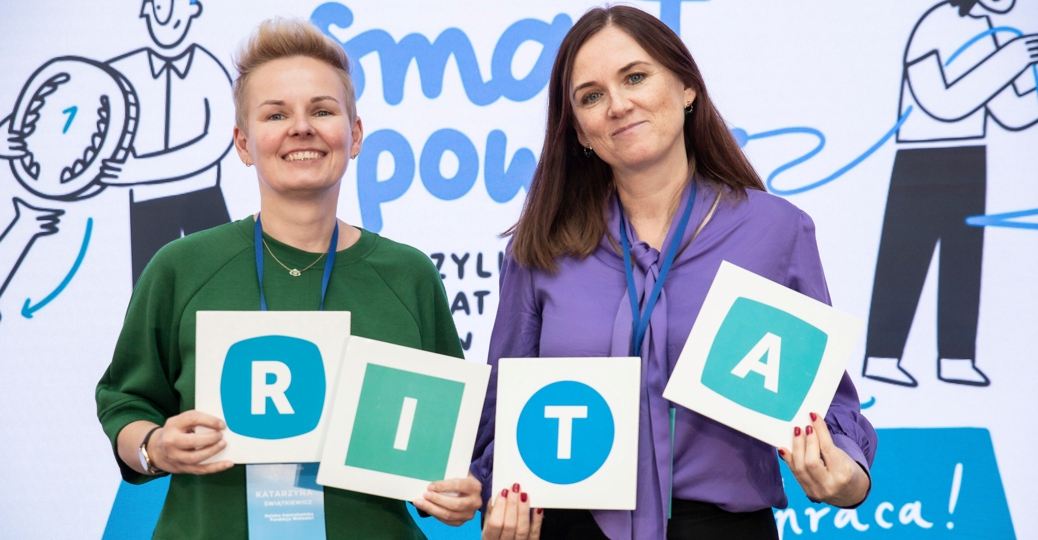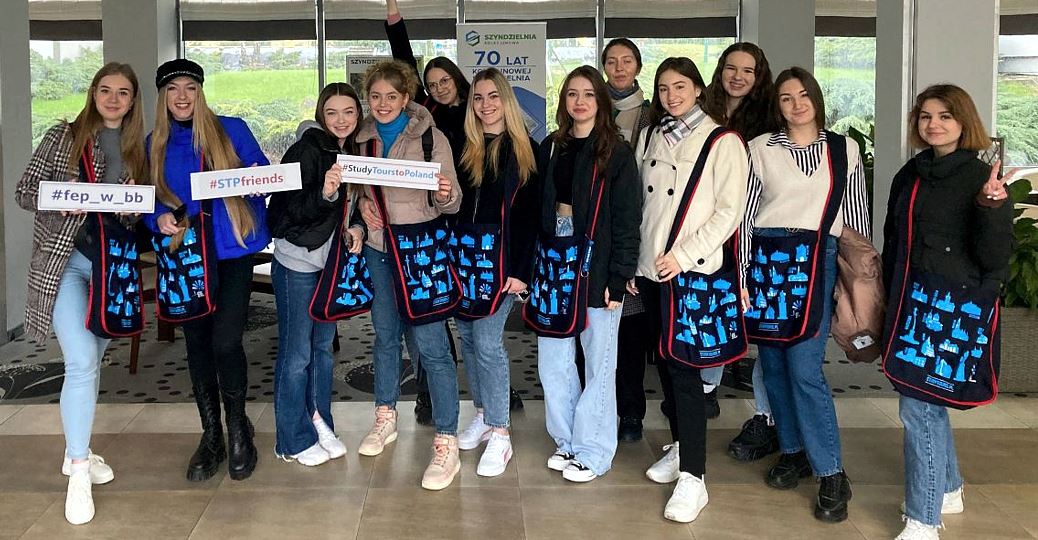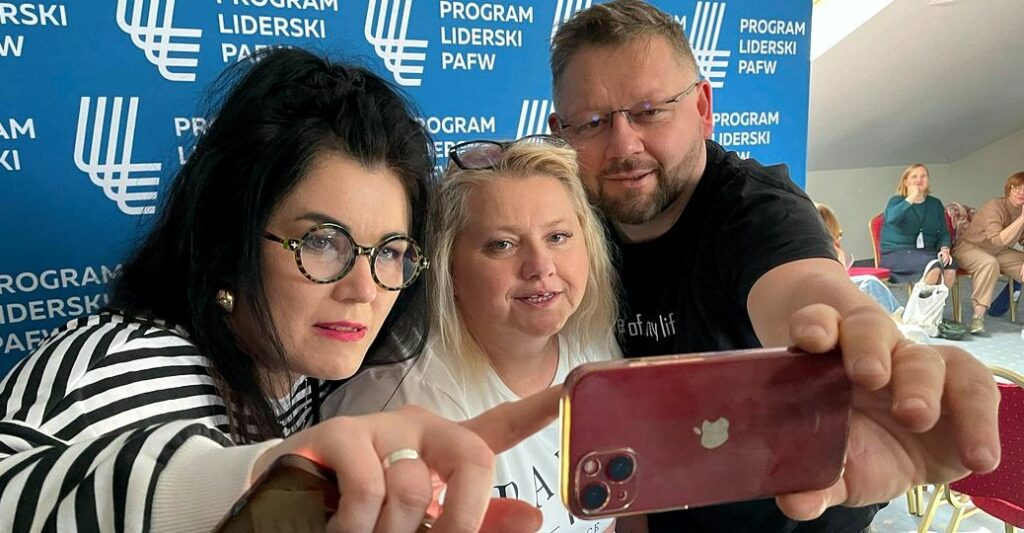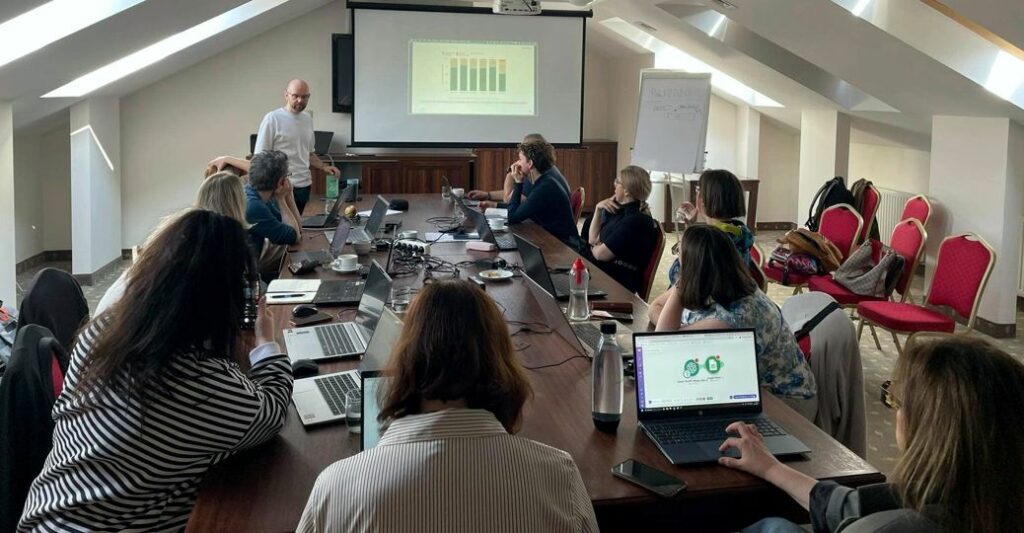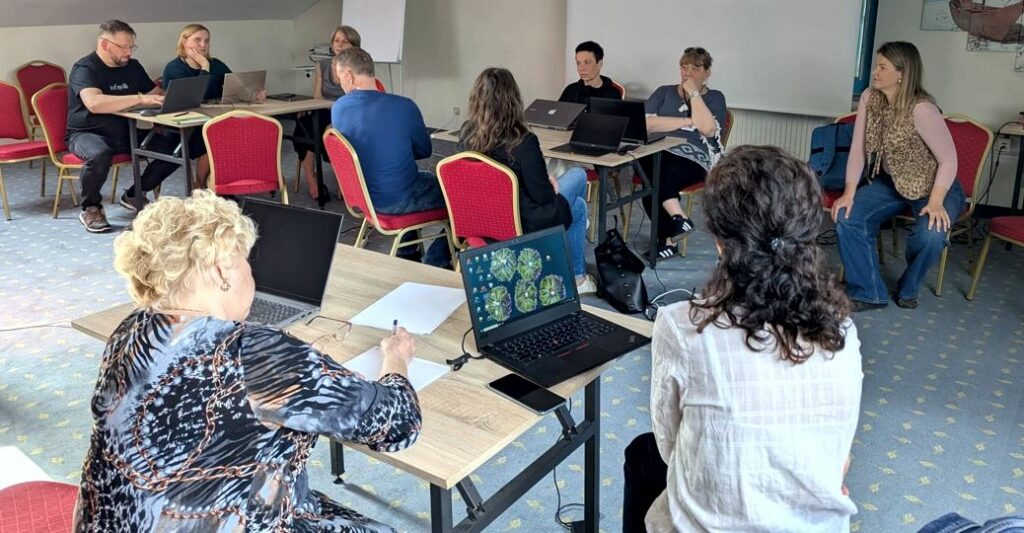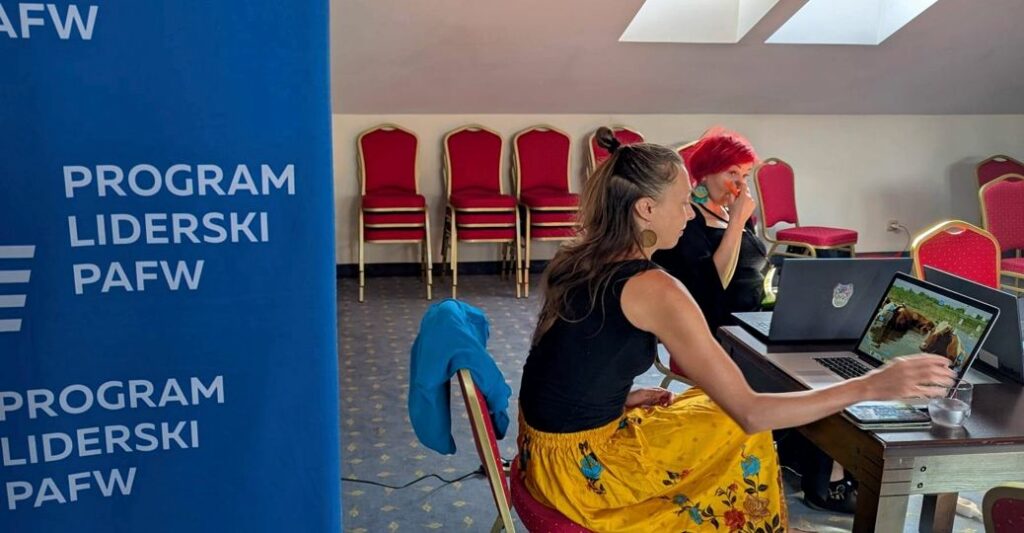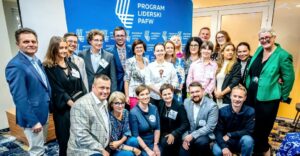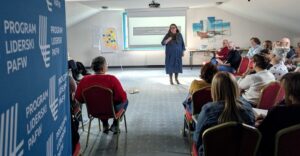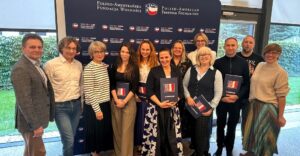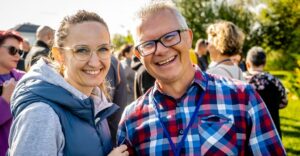In March 2025, “PAFF Leaders” program Alumni Meeting – an event with participation of leaders active in local communities – was held in Książenice. The meeting was organized in Leader Open Space form, and its main theme was AI in the context of local leadership.
The participants could learn about AI potential, get some practical knowledge and discuss the ways of responsible implementation of that technology in social activities.
“Artificial Intelligence has huge potential that can support development of local communities but requires responsible attitude,” Bartosz Sokoliński said in his opening address. He spoke about the history of AI development, current trends, and possibilities of using AI for the common good. He noted that although AI can support local community development, its implementation must be preceded by reflection on ethical and ecological issues. Furthermore, he presented examples of AI use – from music creation, through generating deepfakes, to the use of such tools as ChatGPT or Midjourney.
“AI will not replace you, you will be replaced by someone who uses AI to get better results,” – Laurence Liew, AI Innovation Director at AI Singapore. That is a quotation included in a lecture given by Joanna Wcisło, a sociologist and services designer involved in the “Sector 3.0” program. Her “AI is not magic, it’s support. How to implement AI wisely in social organizations” lecture was focused on practical aspects of AI use in leaders’ everyday work. She presented tools such as Notion AI, Canva AI and Poe, that can support organization’s actions, but she pointed to the need of verification of sources, understanding the limitations of technology and careful, ethical attitude to that innovation. The lecture ended with an inspiring discussion and group exercises that allowed the participants to look at the topic from different perspectives.
Also, the lecture given by Dr. Anna Tryfon-Bojarska of the Warsaw School of Economics on cybersecurity and dangers related to AI, such as disinformation or deepfakes attracted great interest. The participants learned about the examples of manipulation and the ways of minimizing them, and they were made aware of risks accompanying irresponsible use of modern technologies.
On the second day, there were practical workshops in two groups: for the beginners and for those advanced in AI. The workshop for beginners, conducted by Klaudia Wojciechowska, focused on basics of AI use – graphics generation, campaign planning, or automation of simple tasks. The workshop for advanced group, conducted by Kamil Śliwowski, worked on more strategic aspects, such as integration of AI with organizational actions, data analysis, and advanced tools supporting communications. After the break, the meeting summing up took place and participants shared their impressions and reflections.
The meeting in Książenice was not only an opportunity to acquire new knowledge, but also to share experiences and build relationships of people involved in development of their local communities. The participants left with the feeling that AI is not a story of the distant future, but real support that if properly used can become an ally of a social leader.
The meeting participants expressed their satisfaction with having the opportunity to acquire new knowledge and make valuable contacts. They emphasized that “the meeting was very inspiring and allowed sharing experiences which are priceless in local leaders’ work.” One of the program alumni said that: “These lectures and workshops made me realize there are new possibilities to use AI in our communities.” Another alumnus added: “I stopped to fear, I know how and where I shall look for tools suitable for my organization. Now I understand that AI can offer assistance that really changes the way we act locally.”









